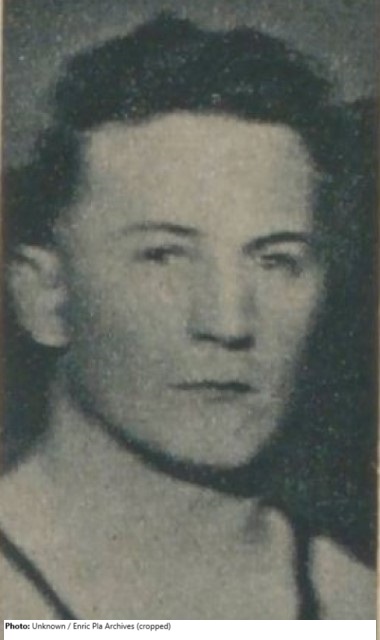Although Émile Frantz was of Luxembourgeois parents, he was born in Villerupt, a small village just across the French border. Little is known of his athletic career other than his 1928 Olympic wrestling appearance. But it is known that on 9 September 1942 Frantz was arrested by the Nazis and taken to the Natzwiler-Struthof concentration camp (prisoner #2224), staying there until 5 September 1944, when he was transferred to Dachau (prisoner #111072). While at Natzwiler he befriended a Norwegian prisoner, Osmund Faremo, who had been a member of the Norwegian resistant group, Milorg. Faremo later became a prominent Norwegian politician, serving in the Norwegian Parliament, promoting Norwegian-Yugoslav relations, and serving as a Norwegian member of the Helsinki Committee on Human Rights. But Faremo likely survived his time at Natzwiler through the efforts of Émile Frantz. In 1997 Faremo published a book in Norwegian Takk for livet. Emil, which can be translated to “Thank you for my life, Emil.” In the book he described being helped by Frantz several times when he was on the verge of dying, with Frantz sneaking him extra food rations and doing some light work for him. Both Frantz and Faremo survived to live long lives, Frantz dying in 1996, and Faremo in 1999.

 Luxembourg
Luxembourg LUX
LUX